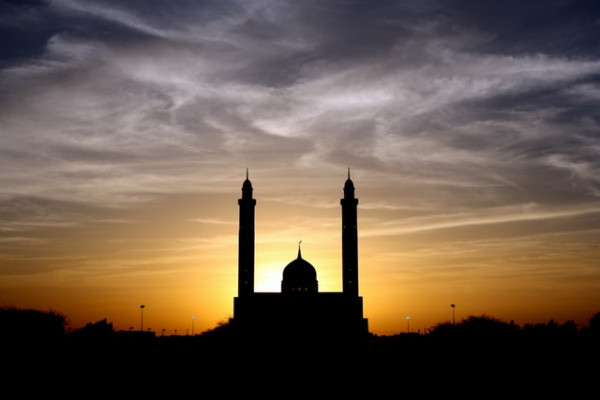Current Section: model

Lesson Epidemics - Lessons and Admonitions
Being struck with epidemics is what Allah has decreed for all people, Muslims and non-Muslims alike. However, the way a Muslim deals with calamity is different from others. He endures it the way Allah has ordered, having patience and using all legal means to repel it before it occurs or to seek a remedy once it has occurred.
The spread of epidemics caused by a weak creation that cannot be seen except under a microscope, and the cause of panic and fear in people, such as Corona, show the incredible power of Allah the most high, and the weakness of the creation despite the technological advancements they possess. They will never escape the circle of weakness and human deficiency. It also shows that Allah has immense power and might; nothing in heaven or earth can cause him difficulty.

Pre-destination is True
Whatever Allah wills, will be, and whatever He does not will, will not be. Epidemics and calamities are from those things. Allah says: (No disaster strikes upon the earth or among yourselves except that it is in a register before We bring it into being - indeed that, for Allah, is easy -) (Al-Hadid: 22)
The Muslims believe that Allah decreed everything in the universe and wrote it down before the creation was even created. This belief has given them reassurance and resilient when they are frightened

Taking Heed of Admonitions and Learning Lessons
What is disappointing is when calamities strike, people become preoccupied with spreading the news without taking heed of the calamity. Whereas taking heed of these things is an abandoned practice of the Sunnah and a great act of worship. It is narrated in "Hilyatul Awliyah" about Adu Darda (may Allah be pleased with him), who said: "Reflecting for an hour is better than standing in prayer the whole night."
Calamities and Tribulations for Muslims Occur Due to:
Showing humbleness and submissiveness towards Allah is a tremendous act of worship when calamities strike and seeking help from Him to remove the trial. Allah says: (Then why, when Our punishment came to them, did they not humble themselves? But their hearts became hardened, and Satan made attractive to them that which they were doing.) (Al-An'am:43) The sincere supplication opens up the doors of heaven, the cover is removed, the scrolls are folded, and the person draws closer to Allah. (And when My servants ask you, [O Muhammad], concerning Me - indeed I am near. I respond to the invocation of the supplicant when he calls upon Me.) (Al-Baqarah:186) Wahb Ibn Munibih (may Allah have mercy upon him) said: "The calamity befalls so that supplication can be made."

Ibn Katheer said: (Then why, when Our punishment came to them, did they not humble themselves?), i.e. Why did they not humble themselves when we put them to trial and shown submissiveness towards us. (But their hearts became hardened) meaning: they were not soft or had fear. (and Satan made attractive to them that which they were doing.) i.e. Polytheism and sins.
To believe that we are safe from Allah's planning or disease and afflictions from befalling upon us is from the most effective forms of delusion and arrogance a person can fall into. Of course, the last thing we consider is the connection between affliction and sins. The Qur'an reinforces this in many verses. Allah says: (Why [is it that] when a [single] disaster struck you [on the day of Uhud], although you had struck [the enemy in the battle of Badr] with one twice as great, you said, "From where is this?" Say, "It is from yourselves.) (Al-Imran:165) And Allah says: (And whatever strikes you of disaster is for what your hands have earned, but He pardons much.) (Shurah:30)

(Allah is most kind to His slaves.)
When calamities first strike, and one crisis follows another, Allah's kindness towards the people of faith becomes apparent by making things easy for them and protecting them from evil—keeping them away from what has occurred to others, enabling them to have patience and be content with Allah's decree in times of adversities. Had it not been for Allah's kindness, hearts would have been filled with loneliness, dread and fear.
Saadi (may Allah have mercy upon him) said in his explanation of the verse: (My Lord is undoubtedly kind to whomever He wants): He sends his kindness to His slave from places he did not imagine, and He raises his level to heights due to affairs (afflicting him with them) that he dislikes.
Trust in Allah is among the most significant ways to overcome trials and tribulations. Therefore, be sure the relief is near, spread optimism to those around you, and avoid being frightened and pessimistic. One hardship cannot overtake two forms of ease. (For indeed, with hardship [will be] ease. Indeed, with hardship [will be] ease.) (Ash-Sharh:5,6)

It is from Allah's established way that He has placed in His creation legislated, and material means enabling to ward off evil. Such means were used by the messengers and righteous people. This is what it means to have correct reliance upon Allah.

The reality of reliance is: The heart relies upon Allah while using the means at hand. As for relying upon Allah while shunning the means is a dispraise of the legislation and shows a lack of intellect. Confining oneself to just exhausting the means and not letting the heart rely upon Allah is a rejection of Tawheed and is falling into polytheism concerning the means.
An obscure creation has distressed the people of this world over their bliss, pleasure, security, stability, and livelihood. Is it befitting a sane person, let alone a believer, to take this world as a permanent home in which they feel reassured, fighting for its sake, competing over its ruins.

No doubt, these viruses are from the signs of Allah's creation, with which He strikes fear into His slaves. They are made to take heed and learn lessons, and it reawakens in them the act of worshipping Allah by having fear of Him. Allah says: (We send not the signs except as a warning.) (Isra:59)

Reviving the Act of Worshipping Allah with Fear of Him is From the Signs of Allah.
Having fear of the signs of Allah is from the guidance of the Prophet ﷺ. Anas (may Allah be pleased with him) said: "When the wind was blowing severely, the face of the Prophet ﷺ was visibly shaken from fear." (AL-Bukhari, 034)
Time is the Muslim's most valuable asset in this world. Ibn 'Abbas reported from the Prophet ﷺ that he said: «Two blessings which many people squander: Good health and free time.» (Al-Bukhari, 6412)

The intellectual person always takes advantage of his time, especially during trials and tribulations. Hence he spends his time in all that brings him closer to Allah. Ibn-ul-Qayyim (may Allah have mercy upon him) said: Wasting time is worse than death because wasting time cuts you off from Allah, and the hereafter, while death cuts you off from this world and its people.
Ash-Shinqiti (may Allah have mercy upon him) said regarding the statement of Allah: (So when you have finished [your duties], then stand up [for worship].) this is a solution to the problem of free time that the whole world is busy trying to solve. A Muslim is not left to be free because either he is working for this world or working for the hereafter.


